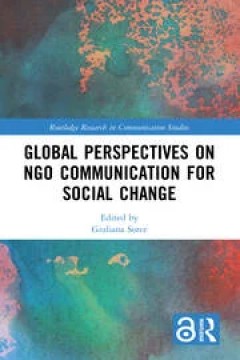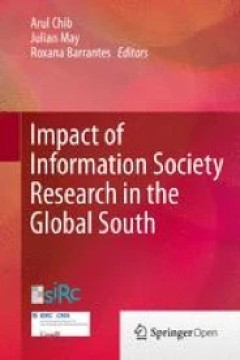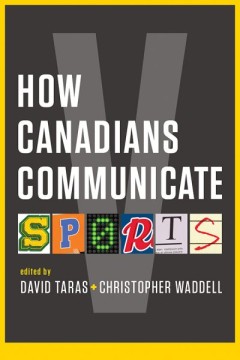Filter by

Global Perspectives on NGO Communication for Social Change
ABSTRACT This book examines the central role media and communication play in the activities of Non-Governmental Organizations (NGOs) around the globe, how NGOs communicate with key publics, engage stakeholders, target political actors, enable input from civil society, and create participatory opportunities. An international line-up of authors first discuss communication practices, strategie…
- Edition
- -
- ISBN/ISSN
- 9781003188636
- Collation
- -
- Series Title
- -
- Call Number
- -

Noncommunicable Diseases
Noncommunicable Diseases: A Compendium introduces readers to noncommunicable diseases (NCDs) – what they are, their burden, their determinants and how they can be prevented and controlled. Focusing on cardiovascular disease, diabetes, cancer and chronic respiratory disease and their five shared main risk factors (tobacco use, harmful use of alcohol, unhealthy diet, physical inactivity and …
- Edition
- -
- ISBN/ISSN
- 9781003306689
- Collation
- -
- Series Title
- -
- Call Number
- 380

Technology’s Refuge: The use of technology by asylum seekers and refugees
An investigation into the use of information communication technologies by refugees during flight, displacement and in settlement, this book examines the impact of Australia’s official policy of mandatory detention on how asylum seekers and refugees maintain links to diasporas and networks of support. Given the restricted contact with the world outside of the immigration detention centre, the…
- Edition
- Ed. 1
- ISBN/ISSN
- -
- Collation
- 54
- Series Title
- UTS Shopfront Series, 5
- Call Number
- 001.51 LIN t

The Media and Communications Study Skills Student Guide
"All the tips, ideas and advice given to, and requested by, MA students in Media and Communications, are brought together in an easy-to-use accessible guide to help students study most effectively. Based upon many years of teaching study skills and hundreds of lecture slides and handouts this introduction covers a range of general and generic skills that the author relates specifically towards …
- Edition
- -
- ISBN/ISSN
- 9781912656592
- Collation
- -
- Series Title
- -
- Call Number
- -

Arab TV-Audiences Negotiating Religion and Identity
Today the relations between Arab audiences and Arab media are characterised by pluralism and fragmentation. More than a thousand Arab satellite TV channels alongside other new media platforms are offering all kinds of programming. Religion has also found a vital place as a topic in mainstream media or in one of the approximately 135 religious satellite channels that broadcast guidance and enter…
- Edition
- -
- ISBN/ISSN
- -
- Collation
- -
- Series Title
- -
- Call Number
- -

Trust and Incidents The Dynamic of Interpersonal Trust between Patients and …
Taking an interdisciplinary approach to conceptualise interpersonal trust between patients and medical practitioners, Katja Beitat introduces a unique model to describe the dynamics of trust building and deterioration with particular relevance to incidents in health care. Empirical findings from studies in Australia and Germany, the two systems focused on in this book, broadly support and expan…
- Edition
- -
- ISBN/ISSN
- 978-3-658-09670-0
- Collation
- -
- Series Title
- -
- Call Number
- -

The Future Internet
Readers seeking to gain a handle on the internet's global expansion will find this book rich in scholarly foundations combined with cutting-edge discussion of emerging ICTs and services and the complex societal contexts in which they are embedded. To explore possibilities to the fullest extent, a sociotechnical systems approach is employed, focusing on the interplay of technical, social, cultur…
- Edition
- -
- ISBN/ISSN
- 978-3-319-22994-2
- Collation
- XIII, 232, 1 b/w illustrations, 6 illustrations in colour
- Series Title
- Public Administration and Information Technology
- Call Number
- -

Impact of Information Society Research in the Global South
The second volume in the SIRCA book series investigates the impact of information society initiatives by extending the boundaries of academic research into the realm of practice. Global in scope, it includes contributions and research projects from Asia, Africa and Latin America. The international scholarly community has taken a variety of approaches to question the impact of information societ…
- Edition
- -
- ISBN/ISSN
- 978-981-287-380-4
- Collation
- X, 291
- Series Title
- -
- Call Number
- 385 IMP

How Canadians Communicate V Sports
Fewer Canadians than ever are lacing up skates, swimming lengths at the pool, practicing their curve ball, and experiencing the thrill of competition. However, despite a decline in active participation, Canadians spend enormous amounts of time and money on sports, as fans and followers of sporting events and sports culture. Never has media coverage of sports been more exhaustive, and never has …
- Edition
- David Taras and Christopher Waddell
- ISBN/ISSN
- 9781771990073.01
- Collation
- -
- Series Title
- -
- Call Number
- 395 pages

How to Read Like You Mean It
In this candid and concise volume, Kyle Conway, author of The Art of Communication in a Polarized World, considers how we can open ourselves to others and to ideas that scare us by reading difficult texts. Conway argues that because we resist ideas we don’t understand, we must embrace confusion as a constitutive part of understanding and meaningful exchange, whether between a reader and a tex…
- Edition
- -
- ISBN/ISSN
- 9781771993753
- Collation
- -
- Series Title
- Cultural Dialectics
- Call Number
- 6 x 9, 184 pages
 Computer Science, Information & General Works
Computer Science, Information & General Works  Philosophy & Psychology
Philosophy & Psychology  Religion
Religion  Social Sciences
Social Sciences  Language
Language  Pure Science
Pure Science  Applied Sciences
Applied Sciences  Art & Recreation
Art & Recreation  Literature
Literature  History & Geography
History & Geography